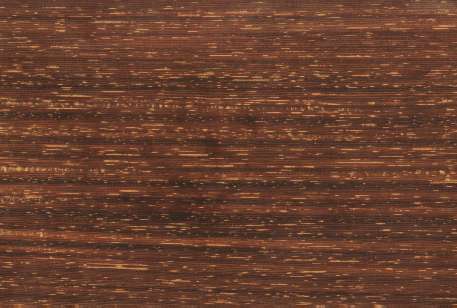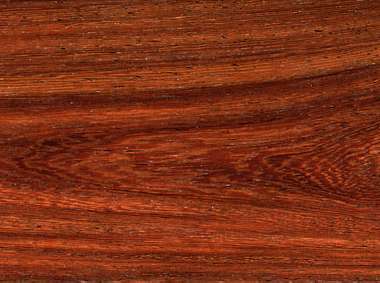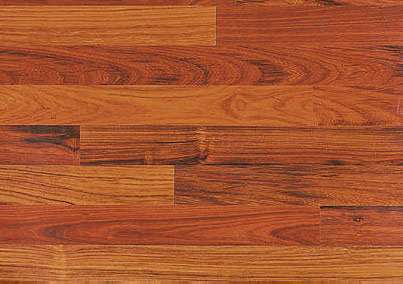  
Black cabbage-bark (Lonchocarpus castilloi)
Family: Leguminosae
Common names: Balche, Barbasco, Black cabbage bark, Black cabbage-bark, Cabbage bark, Chaperno, Guaimaro, Haiari, Imbira de sapo, Macaratu, Machiche, Manchich, Marajagua, Sindajapl, Sindjaple, Timbo
Distributed in: Belize, Brazil, Columbia, Costa Rica, Guatemala, Guyana, Honduras, Mexico, Panama, Peru, Suriname, Venezuela (Central America, Latin America)
Distribution overview: Tropical America, Mexico in particular. It grows on open hillsides and dry plains at lowland or medium elevations, but may also be locally found in high forests and marsh forests on alluvial flats in Surinam.
Common uses: Axles, Bent Parts, Boat building (general), Bridge construction, Building construction, Building materials, Cabin construction, Cabinetmaking, Chairs, Chests, Construction, Crossties, Desks, Dining-room furniture, Domestic flooring, Drawer sides, Factory construction, Factory flooring, Fine furniture, Flooring, Furniture , Furniture components, Furniture squares or stock, Hatracks, Heavy construction, Kitchen cabinets, Light construction, Living-room suites, Mine timbers, Office furniture, Parquet flooring, Poles, Radio - stereo - TV cabinets, Railroad ties, Rustic furniture, Stools, Sub-flooring, Tool handles, Turnery, Utility furniture, Vehicle parts, Wardrobes, Wheel spokes, Wheels
Environment profile:
The environmental profile of this species within its natural habitat has not been officially assessed
Tree size: Tree height is 20-30 m
Colors: the heart isReddish brown, Yellowand the sapwoodWhite to yellow, Yellow.The grain isVariable (figure), the textureFine to mediumand the lusterSlightly lustrous
The luster is low to medium
Natural durability: Resistant to attack from termites (Isoptera), Very durable
Odor: No specific smell or taste
Kiln Schedules: Kiln Schedule G (4/4); United Kingdom
Drying Defects: Slight twist/warp, Splitting
Ease of Drying: Moderately Difficult to Difficult
Tree Identification: Bole/stem form is unknown
Comments: General finishing qualities are rated as good Machiche is a potential substitute for applications where a dark-reddish wood, such as Mahogany is required
Boring: Moderately easy
Cutting Resistance: Easy to saw
Nailing: Difficult to nail, Pre-boring recommended
Planing: Planes to a satisfactory finish
Resistance to Impregnation: Sapwood is resistant
Most species in the genus are rather difficult to treat with wood preservatives
Response to hand tools: Difficult to machine
Sanding: Good sanding properties
Veneering qualities: Veneers easily, Veneers moderately easy
Steam bending: Moderate
Turning: Turns with moderate ease
Polishing: Good; Staining:
The wood takes finishes well, except polyurethane. Finishing is reported to highlight irregularities in the grain to make the normally dull wood rather attractive
;
- Numerical data Metric
- Numerical data English
- Strength properties
- References
 |
 |
 |
 |
| Item |
Green |
Dry |
Metric |
| Specific Gravity |
0,63 |
|
|
| Density |
|
897 |
kg/m3 |
| Bending Strength |
1305 |
1823 |
kg/cm2 |
| Crushing Strength |
680 |
921 |
kg/cm2 |
| Hardness |
|
1272 |
kg |
| Impact Strength |
101 |
|
cm |
| Shearing Strength |
|
205 |
kg/cm2 |
| Stiffness |
161 |
180 |
1000 kg/cm2 |
| Tangential Shrinkage |
7 |
|
% |
| Radial Shrinkage |
4 |
|
% |
| Weight |
913 |
881 |
kg/m3 |
| Maximum Load |
1,05 |
1,33 |
cm-kg/cm3 |
| Toughness |
|
385 |
cm-kg |
| Static Bending |
|
|
kg/cm2 |
|
 |  |  |  | | Item | Green | Dry | English | | Bending Strength | 18567 | 25938 | psi | | Density | | 56 | lbs/ft3 | | Hardness | | 2805 | lbs | | Impact Strength | 40 | | inches | | Maximum Crushing Strength | 9680 | 13101 | psi | | Shearing Strength | | 2920 | psi | | Stiffness | 2298 | 2572 | 1000 psi | | Toughness | | 335 | inch-lbs | | Work to Maximum Load | 15 | 19 | inch-lbs/in3 | | Specific Gravity | 0.63 | | | | Weight | 57 | 55 | lbs/ft3 | | Radial Shrinkage | 4 | | % | | Tangential Shrinkage | 7 | | % | | Volumetric Shrinkage | 13 | | % | |
Density (dry weight) = 53 - 60 lbs/cu. ft.
Modulus of Elasticity (stiffness) = high
Max. crushing strength = very high
Bending strength (MOR) = very high
Toughness (total work) = high
Shrinkage, Tangential = moderate
Shrinkage, Radial = moderate
Shearing strength (parallel to grain) = very high
Shearing strength (parallel to grain) = high
Max. crushing strength = high
Hardness (side grain) = very hard
Bending strength (MOR) = high
Belize,1946,42 Secondary Hardwood Timbers of British Honduras,British Honduras Forest Department Bulletin,No.1Boone, R.S., C.J. Kozlik, P.J. Bois, E.M. Wengert. 1988. Dry Kiln Schedules for Commercial Hardwoods -Temperate and Tropical. USDA, Forest Service, General Technical Report FPL-GTR-57, Forest Products Laboratory, Madison, Wisconsin.Chudnoff, M.,1984,Tropical Timbers of the World,U.S.A. Department of Agriculture, Forest Service, Forest Products,Laboratory, Madison.Clifford, N.,1953,Commercial Hardwoods - Their Characteristics Identification and,Utilization,Sir Isaac Pitman & Sons Ltd. LondonLavers, G. M.1966. The Strength Properties of Timbers. Forest Products Research Bulletin, No. 50. Ministry of Technology, Her Majesty's Stationery Office, London.Lavers, G.M.,1983,The Strength Properties of Timber (3rd ed. revised Moore G.L.,Forest Products Research Laboratory, Princes Risborough, Building Research,Establishment Report (formerly Bulletin No.50)Perpetua Hardwoods.Sea Star Trading Co. - Purveyors of Fine Wood.Newport, Oregon.Personal Communication, 1993.Takahashi, A.,1975,Compilation of data on the Mechanical Properties of Foreign Woods (Part 2,Central and South America,Shimane University, Japan, Research Report on Foreign Wood No.4WARP. 1995.Getting to Know LKS:Machiche - Lonchocarpus castilloii. Published Results of Test Conducted Students at the Woodworking Centre of Ontario, Conestoga College Under the Supervision of Dennis Harlock and John Buss. Understory, Volume 5, Number 1, Fall/Winter, 1995. Page 9.
|










